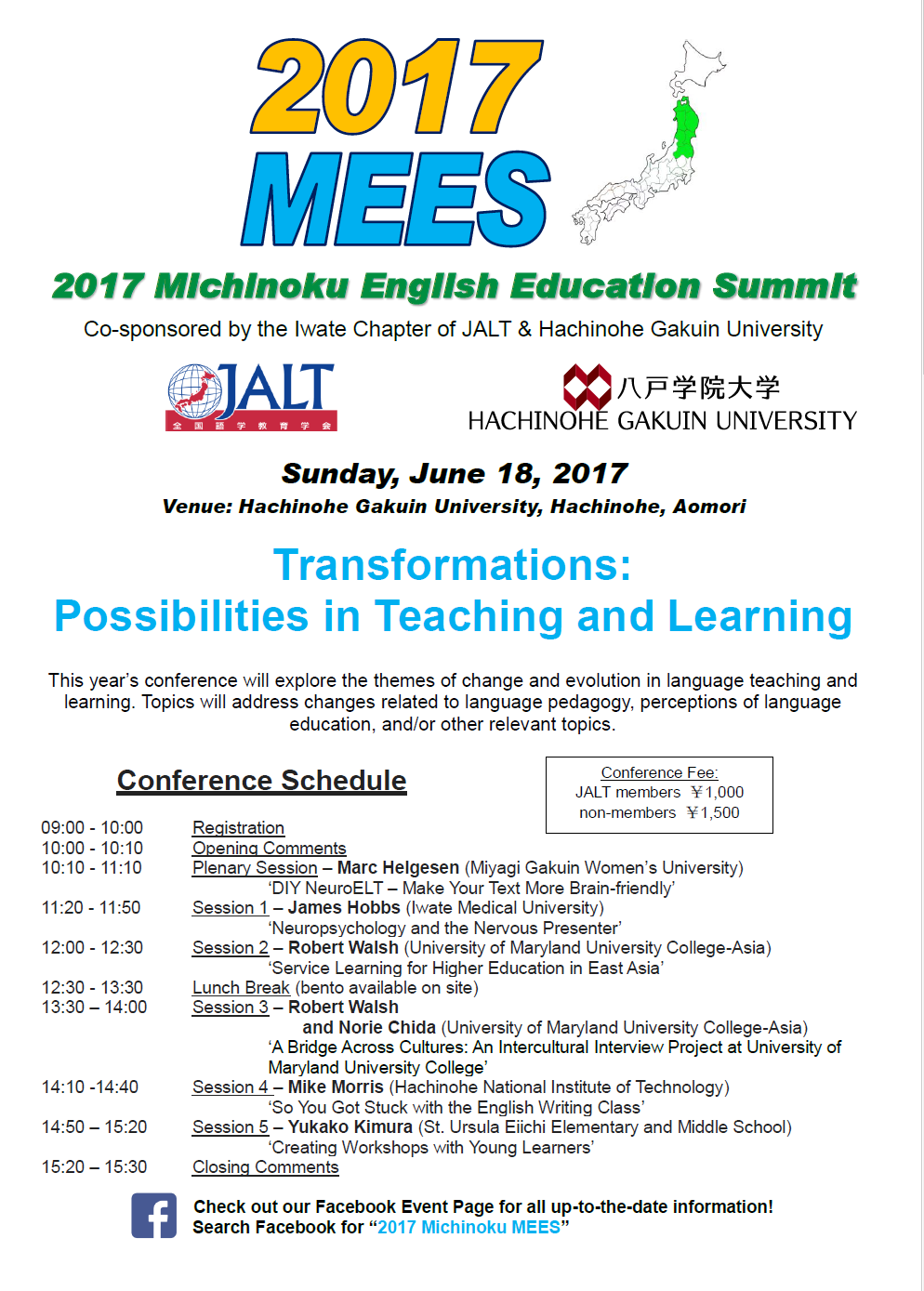Please check out our tab for MEES 2017 for a permanent place for all MEES 2017 information. I’ve placed it here as well.

2017 Michinoku English Education Summit
Co-sponsored by the Iwate Chapter of JALT and Hachinohe Gakuin University
Sunday, June 18, 2017
at Hachinohe Gakuin University
_______________
Conference theme:
“Transformations: Possibilities in Teaching and Learning”
This year’s conference will explore the themes of change and evolution in language teaching and learning. Topics will address changes related to language pedagogy, perceptions of language education, and/or other relevant topics.
Plenary speaker:
Marc Helgesen (Miyagi Gakuin Women’s University)
________________
PRESENTER LINEUP AND CONFERENCE SCHEDULE
(updated)
Hello everyone !
Just under a month to go until the 2017 MEES conference ! We want to thank everyone who submitted presentation proposals this year. We are proud to announce our full day’s lineup of six presentations for Sunday, June 18th!
Please check out the full conference schedule below. The lineup and full presentation descriptions are also attached to this post as 4 separate image files.
Please also check out details on the pre-conference dinner party (evening of Sat. 17th), shuttle busses to and from the venue, and bento reservations posted here on the Facebook event page.
Conference Schedule:
09:00 – 10:00 Registration
10:00 – 10:10 Opening Comments
10:10 – 11:10 Plenary Session – Marc Helgesen (Miyagi Gakuin Women’s University) ‘DIY NeuroELT – Make Your Text More Brain-friendly’
11:20 – 11:50 Session 1 – James Hobbs (Iwate Medical University) ‘Neuropsychology and the Nervous Presenter’
12:00 – 12:30 Session 2 – Robert Walsh (University of Maryland University College-Asia) ‘Service Learning for Higher Education in East Asia’
12:30 – 13:30 Lunch Break (bento available on site)
13:30 – 14:00 Session 3 – Robert Walsh and Norie Chida (University of Maryland University College-Asia) ‘A Bridge Across Cultures: An Intercultural Interview Project at University of Maryland University College’
14:10 -14:40 Session 4 – Mike Morris (Hachinohe National Institute of Technology) ‘So You Got Stuck with the English Writing Class’
14:50 – 15:20 Session 5 – Yukako Kimura (St. Ursula Eiichi Elementary and Middle School) ‘Creating Workshops with Young Learners’
15:20 – 15:30 Closing Comments
